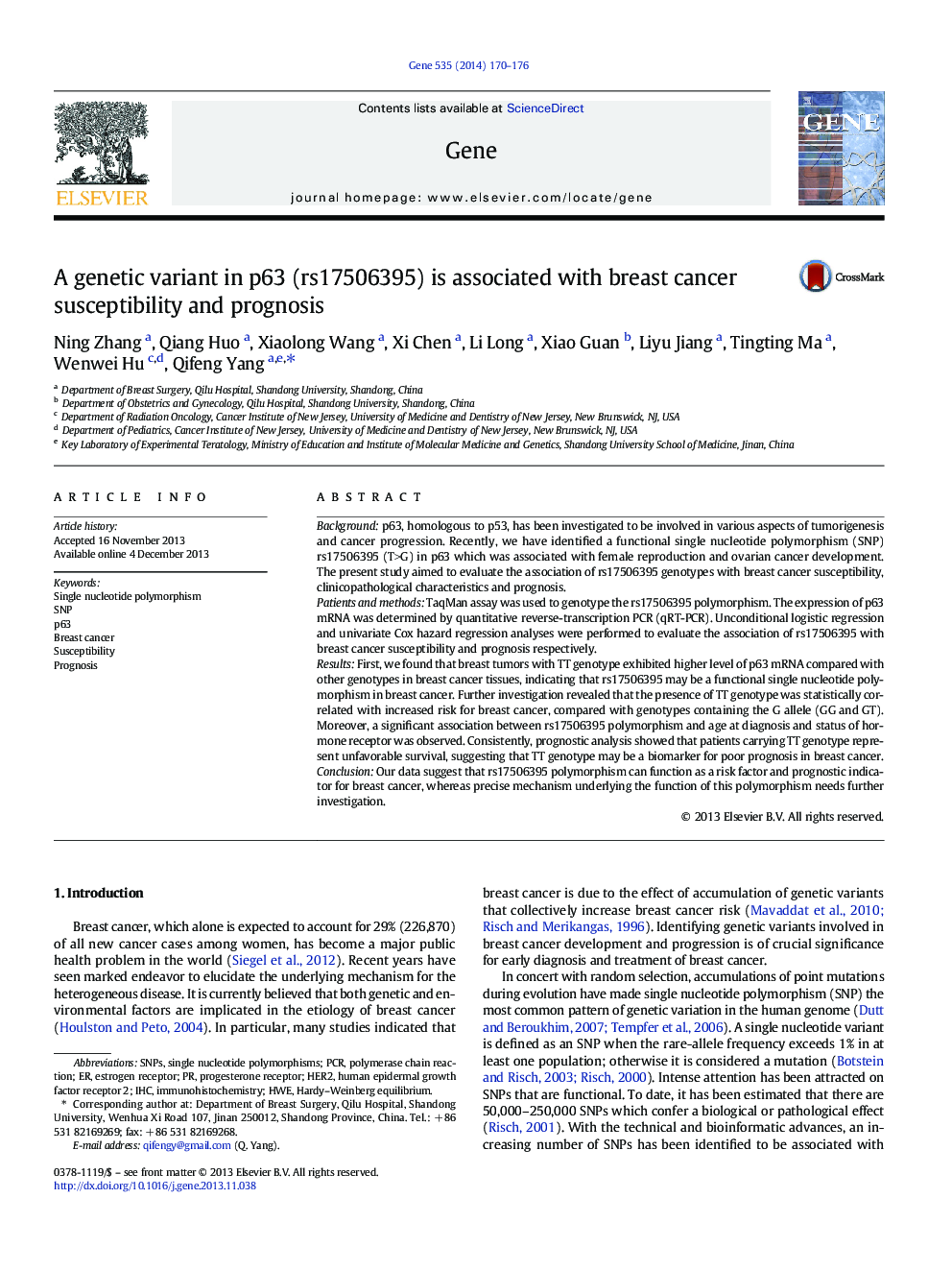| Article ID | Journal | Published Year | Pages | File Type |
|---|---|---|---|---|
| 5905921 | Gene | 2014 | 7 Pages |
â¢The polymorphism rs17506395 (T>G) is located at p63 gene.â¢SNP rs17506395 is associated with p63 expression level.â¢Subjects with TT genotype have shorter survival time.â¢Subjects with TT genotype correlate with increased risk for breast cancer.â¢rs17506395 may serve as a risk and prognostic factor for breast cancer.
Backgroundp63, homologous to p53, has been investigated to be involved in various aspects of tumorigenesis and cancer progression. Recently, we have identified a functional single nucleotide polymorphism (SNP) rs17506395 (T>G) in p63 which was associated with female reproduction and ovarian cancer development. The present study aimed to evaluate the association of rs17506395 genotypes with breast cancer susceptibility, clinicopathological characteristics and prognosis.Patients and methodsTaqMan assay was used to genotype the rs17506395 polymorphism. The expression of p63 mRNA was determined by quantitative reverse-transcription PCR (qRT-PCR). Unconditional logistic regression and univariate Cox hazard regression analyses were performed to evaluate the association of rs17506395 with breast cancer susceptibility and prognosis respectively.ResultsFirst, we found that breast tumors with TT genotype exhibited higher level of p63 mRNA compared with other genotypes in breast cancer tissues, indicating that rs17506395 may be a functional single nucleotide polymorphism in breast cancer. Further investigation revealed that the presence of TT genotype was statistically correlated with increased risk for breast cancer, compared with genotypes containing the G allele (GG and GT). Moreover, a significant association between rs17506395 polymorphism and age at diagnosis and status of hormone receptor was observed. Consistently, prognostic analysis showed that patients carrying TT genotype represent unfavorable survival, suggesting that TT genotype may be a biomarker for poor prognosis in breast cancer.ConclusionOur data suggest that rs17506395 polymorphism can function as a risk factor and prognostic indicator for breast cancer, whereas precise mechanism underlying the function of this polymorphism needs further investigation.
